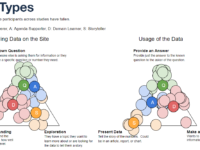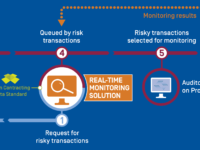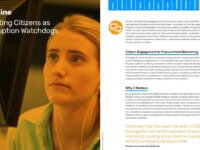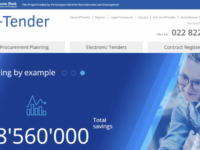Minas Gerais Government Transparency Portal is an instrument of transparency and control of state governmental actions by its citizens. The data available on the portal allows citizens to inspect and monitor public expenses of the government, contributing to greater transparency and prevention of corruption. Since its creation, the portal has been improved and complies to regulations and standards of public information and has a user friendly interface.
Innovation Tag Opengov: digital government
Case Study
Redesigning the U.S. Natural Resources Revenue Data (NRRD) portal homepage to meet user needs

The Natural Resources Revenue Data (NRRD) portal provides open data to the public about revenue generated from extraction of natural resources on public lands and waters. Open data provides transparency into government operations, which gives the public information to back up claims made in the name of social justice. To make our data truly open and useful to the public, we’re going beyond our government mandates to open data and including our users in the design process as our site evolves.
Innovation helps citizens extract value from open data on the use of public funds and fosters accountability of public authorities for goods, services and works purchased. With the help of the electronic platform, the citizens and business can complain about non-competitive behaviour, poor quality or check the efficiency of procurement by their city council, school, hospital. Introduction of AI-powered risk monitoring allowed anyone to find and act upon violations in a fast and simple manner.
MTender is a revolutionary tool which will transform the way public funds are spent in Moldova, a country with a long history of corruption.
The world’s first fully digital public procurement system, MTender uses open data to manage every element of the public contracting system. This enables officials to do their jobs better, citizens to hold the government to account, taxpayers to get a better deal, and businesses to compete on a level playing field.
Case Study
Digital tools to monitor and predict risks in auditing Ukraine’s revolutionary online public…

Ukraine is transforming its public procurement system to bring public procurement into the open, so citizens get a better deal and government runs smoothly. EBRD has supported the Ukrainian government to develop a new legal framework, and to develop cutting edge tools which can process vast amounts of procurement data in real time. State auditors can now quickly & pre-emptively spot risks or inefficiencies in the system and address them. It is the first innovation of this kind in the world.
MEData is the strategy for providing, appropriating and using the public data of Medellin. It will become the official information source of the city, where citizens will have constant and reliable data that can be used to generate knowledge, promote technological innovation and boost economy. it is the first government platform that integrates strategic information sources into a big data technology and automatically synchronizes them with an open data portal.
Case Study
Prioritising indicators from items in big data: An algorithm for an automated, visual approach
Identifying representative indicators requires distinguishing the driving forces and directions of relationships in innovation, economic or health data.
The innovation is an algorithm, a sequence of coded instructions, automated to derive visual tools directly from big data.
The algorithm is adaptable to various fields of study for rapid, data visualisation and enables transparent, evidence-based indicator prioritisation.
Based on the idea that cultural consumption is important both for enriching yourself as a person and strengthening the fabric of our society, in 2016 the Italian government introduced a 500€ cultural bonus for all 18-year-old people living in Italy. Young people can spend it on cultural items and activities such as going to theatres, concerts and museums, buying books, etc. They have to register online and then spend the money through the dedicated website 18app.it, accessible from any device.…
Open policy-making is an opportunity for government and stakeholders to move from linear, polarized, single-issue, interest-based considerations to interactions that are networked, collaborative, opportunity-based and where complexity is viewed as an asset. Adapted for the Government of Canada context, Pol.is is a cost-effective and highly scalable, digital engagement platform that can be used as part of broader strategies to put people and robust evidence at the heart of government decisions.
The methodology of the “Brazil Transparency Scale” Survey consists of a checklist on 17 categories that cover all relevant aspects of the access to information regulation at the local level, the existence and functionality of the electronic Citizen Information Service (passive transparency), as well as the information disclosure of public funds, revenue, expenditure, public bidding, etc. (active transparency). The final evaluation score ranged from zero to ten.



